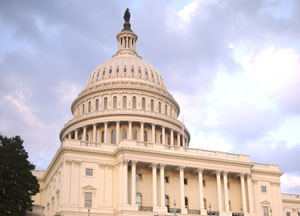
Rep. Jim McDermott has some advice for Democrats who support Medicare and Medicaid cuts as part of a deal to raise the federal debt ceiling: Beware of the 30-second television spot.
“Any Democrat who votes for it opens himself or herself up to Murphy’s Law,” warns the 12-term Washington Democrat, who is one of 20 doctors in the current Congress. Once the voting is concluded, “you’ll then have to go and meet the commercial,” McDermott said.
Members of Congress watched closely as President Obama and congressional leaders met for two hours Thursday at the White House to discuss a deal to raise the debt ceiling before an Aug. 2 deadline. Obama said while the talks were constructive, the parties were still apart on a wide range of issues.
Any deal that is struck in the White House must then pass both chambers of Congress, which could be difficult in an overheated political environment.
Democrats have been attacking Rep. Paul Ryan’s Medicare plan for months, and they used it as a defining issue in a recent New York House race where Democrat Kathy Hochul won. So would agreeing to reductions in Medicare or Medicaid as part of a debt ceiling deal create a similar vulnerability for Democrats?
Rep. Robert Andrews doesn’t think so. “There’s a huge difference between ending Medicare and replacing it a private insurance system and trying to make Medicare as we know it operate more efficiently. That’s the distinction,” the New Jersey Democrat said.
Andrews, a close ally of House Minority Leader Nancy Pelosi, said the health law shows the federal government can cut spending on Medicare and not change the character of the program. “I think any changes that come into this agreement will show a similar principle,” adding that the way any Medicare or Medicaid savings are achieved is more important that the overall level of reductions.
Andrews also backs Obama’s goal of cutting the deficit by $4 trillion.
“The best impact we can have on the economy is to have a major impact on the deficit,” Andrews said Thursday. “Significant deficit reduction is really good for the country. And what’s good for the country is usually good for us politically.”






